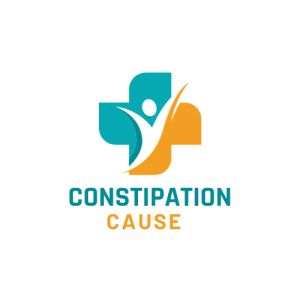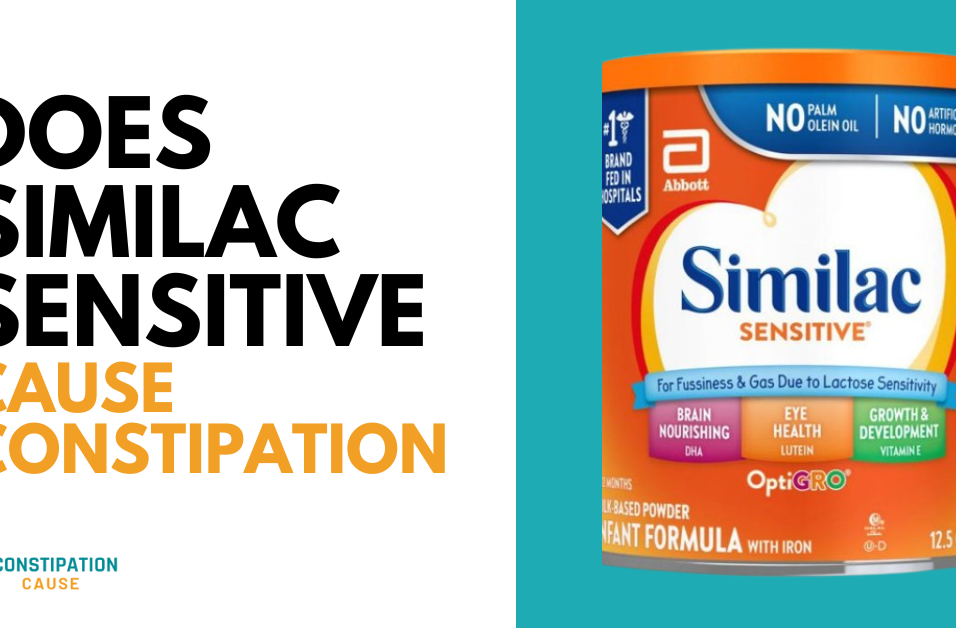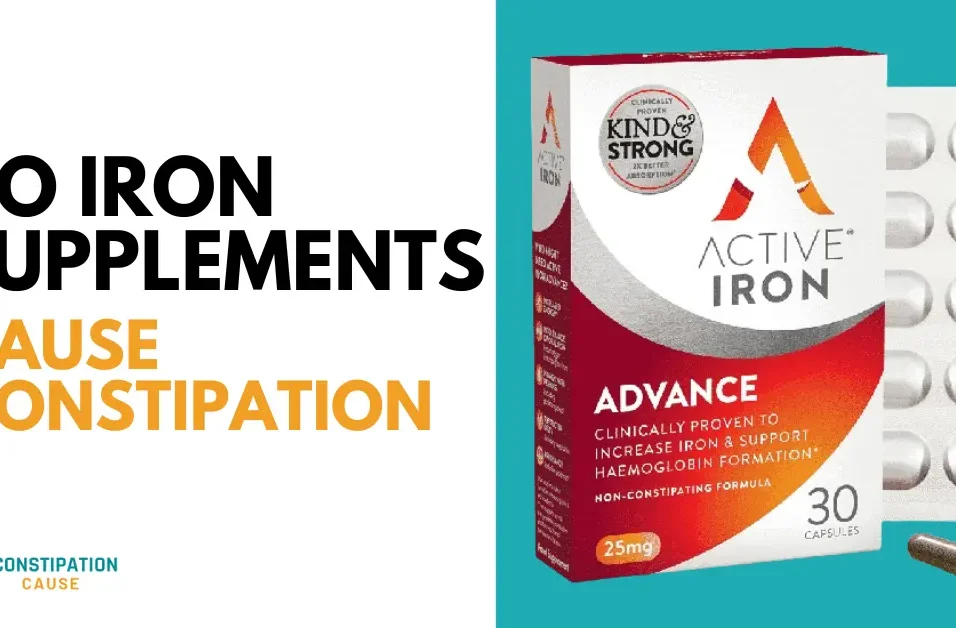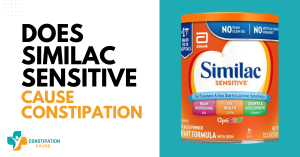Have you ever wondered why are your ribs aching severely, especially when you are constipated?
Well, you are not alone! The interplay between the discomfort of rib pain and the often-overlooked companion, constipation, is now becoming an important concern for many!
In this article, we will discuss in detail “can constipation cause rib pain?” and highlight the symptoms of this pain as a result of digestive issues. So, stay in the loop!
What is Constipation?
Constipation, often considered a commonplace ailment, is a condition that goes beyond occasional irregularities in bowel habits. It involves the slowing down of the natural movement of stool through the colon, leading to hardened and challenging-to-pass stool. The frequency of bowel movements may decrease, causing distress for those affected.
Common Causes of Constipation:
Several factors contribute to constipation, ranging from lifestyle choices to underlying medical conditions. Insufficient fiber intake, inadequate hydration, lack of physical activity, and ignoring the urge to defecate are common lifestyle-related causes. Certain medications, neurological disorders, and hormonal changes can also play a role in disrupting regular bowel movements.
Overview of the Digestive System:
To comprehend constipation’s impact, a glimpse into the digestive system is essential. The process begins as food is ingested and moves through the esophagus into the stomach, where digestion initiates. Subsequently, the semi-digested food enters the small intestine, where nutrients are absorbed, and the remaining material moves into the colon. In the colon, water is absorbed, and the stool takes form. The rectum, positioned at the end of the colon, signals when it’s time for a bowel movement.
Understanding this digestive ballet is pivotal, as any disruption in the harmonious choreography can manifest as constipation. As we journey through the intricacies of constipation, our ultimate goal is to discern its potential connection to rib pain and unveil the layers beneath this often-overlooked aspect of well-being.
Rib Pain: Causes and Symptoms:
Rib pain, a complex interplay of sensations, can arise from a multitude of factors. Understanding the diverse causes and symptoms is crucial in decoding the language our body speaks.
Common Causes of Rib Pain:
- Muscle Strain:
- Symptoms: Sharp or aching pain, exacerbated by movement.
- Causes: Overexertion, sudden twisting, or muscle overuse.
- Costochondritis:
- Symptoms: Tenderness and pain around the sternum.
- Causes: Inflammation of the cartilage connecting ribs to the breastbone.
- Rib Fractures or Injuries:
- Symptoms: Intense pain, worsened by breathing or coughing.
- Causes: Trauma, falls, or repetitive stress.
- Gastrointestinal Issues:
- Symptoms: Pain in the lower ribs, sometimes associated with bloating.
- Causes: Constipation, gas, or indigestion affecting the diaphragm.
- Infections or Inflammation:
- Symptoms: Pain, tenderness, or swelling around the affected area.
- Causes: Conditions like pleurisy or pneumonia.
- Joint Issues:
- Symptoms: Pain exacerbated by movement or palpation.
- Causes: Conditions like arthritis affecting the joints connecting ribs and vertebrae.
Establishing a Baseline for Understanding Rib Pain:
- Location: Identifying the precise location of pain (front, side, or back) provides insights into potential causes.
- Nature of Pain: Distinguishing between sharp, stabbing, or dull pain aids in pinpointing underlying issues.
- Triggers: Understanding activities or movements that worsen or alleviate pain offers diagnostic clues.
- Duration: Chronic or acute nature of pain helps differentiate between ongoing conditions and sudden injuries.
- Associated Symptoms: Observing additional symptoms like fever, difficulty breathing, or gastrointestinal distress provides a holistic perspective.
Rib pain, with its intricate web of causes and symptoms, necessitates a nuanced approach. By establishing this comprehensive baseline, we lay the groundwork for unraveling the potential connections between rib pain and constipation, recognizing the multifaceted nature of discomfort in the ribcage.
Can Constipation Cause Rib Pain?
While constipation may not be a direct cause of rib pain, the associated anatomical factors suggest a potential influence.
Anatomical Connections:
- Diaphragmatic Distress: Constipation can lead to bloating and gas, causing distension of the intestines. This distension may exert pressure on the diaphragm, potentially contributing to discomfort in the lower ribs.
- Gastrointestinal Impact: The lower ribs are in proximity to the gastrointestinal tract. Disturbed bowel movements and constipation may affect the surrounding structures, triggering sensations of discomfort or pain.
Factors Influencing Rib Pain due to Constipation:
- Bowel Distension: The degree of distension caused by constipation can impact the pressure exerted on the diaphragm, influencing rib pain severity.
- Individual Pain Threshold: Variability in pain tolerance among individuals may determine the perceived severity of rib pain associated with constipation.
- Underlying Conditions: Pre-existing gastrointestinal or musculoskeletal conditions can amplify rib pain sensitivity during episodes of constipation.
- Duration of Constipation: Chronic constipation may contribute to prolonged discomfort, potentially intensifying rib pain over time.
- Hydration Levels: Inadequate hydration can exacerbate constipation, potentially intensifying rib pain due to increased intestinal pressure.
- Muscle Strain: Strain from repeated attempts at bowel movements during constipation episodes may contribute to musculoskeletal discomfort in the rib area.
Constipation Severity:
Constipation, varying in intensity, has a discernible influence on the likelihood and severity of rib pain. Delving into this connection sheds light on the nuanced relationship between the degree of constipation and the potential discomfort experienced in the ribcage.
1. Mild Constipation:
- Likelihood of Rib Pain: Low.
- Impact: Mild constipation may not exert significant pressure on the diaphragm or surrounding structures, minimizing the likelihood of rib pain.
2. Moderate Constipation:
- Likelihood of Rib Pain: Moderate.
- Impact: As constipation intensifies, there’s an increased probability of discomfort in the lower ribs due to heightened bowel distension and diaphragmatic pressure.
3. Severe Constipation:
- Likelihood of Rib Pain: High.
- Impact: Pronounced bowel distension and pressure on adjacent structures make rib pain more likely and potentially more intense in cases of severe constipation.
4. Chronic Constipation:
- Likelihood of Rib Pain: Prolonged and Recurrent.
- Impact: The persistent nature of chronic constipation elevates the risk of recurrent rib pain, emphasizing the importance of addressing underlying digestive issues.
Can constipation cause pain under the right rib?
Constipation itself doesn’t cause pain under the right rib. However, if constipation is severe or prolonged, it can sometimes lead to discomfort or referred pain in the abdominal area, which might include the right rib region. If you’re experiencing persistent or severe pain, it’s best to consult with a healthcare professional for an accurate diagnosis and appropriate treatment. Hips misbalance effects on digestion check out can hips misalignment cause constipation? See how many issues you have to face while hips misbalance.
Can constipation cause right rib pain?
Certainly, constipation can lead to rib pain on the left side. The pressure and distension caused by constipation can affect the entire colon, including the ascending colon, which runs up the right side of the abdomen, reaching toward the right rib cage. This increased pressure can irritate surrounding tissues and organs, including the liver and the muscles of the rib cage, leading to discomfort or pain on the right side.
Can constipation cause left rib pain?
Indeed, constipation can also induce discomfort on the left side under the ribcage, as the distension of the intestines affects the entire abdominal region, including the descending colon, which runs down the left side of the abdomen. This increased pressure can irritate nearby tissues and organs, including the muscles of the ribcage and the diaphragm.
Can constipation cause pain under the right rib cage?
Yes, constipation can cause pain under the right rib cage, often due to increased pressure on the diaphragm and adjacent structures. When constipated, the colon becomes distended, exerting pressure on surrounding organs and tissues, including the liver and the muscles of the rib cage. This pressure can lead to discomfort or pain in the right upper abdomen, which may extend to the area under the right rib cage. Additionally, the distension of the colon can irritate nearby nerves, contributing to the sensation of pain in this region.
Can constipation cause rib pain in pregnancy?
Yes, constipation is a common issue during pregnancy, and the associated abdominal discomfort can contribute to rib pain. As the uterus expands during pregnancy, it can put pressure on the intestines, leading to slowed bowel movements and constipation. Additionally, hormonal changes during pregnancy can also affect bowel movements and contribute to constipation.
Individual Health Factors:
1. Gastrointestinal Conditions:
Impact: Pre-existing gastrointestinal issues may amplify the connection between constipation and rib pain.
2. Musculoskeletal Health:
Impact: Conditions affecting the musculoskeletal system can influence the perception and severity of rib pain during episodes of constipation.
3. Hydration Levels:
Impact: Inadequate hydration may exacerbate constipation, influencing the likelihood and intensity of rib pain.
4. Pain Threshold:
Impact: Variations in individual pain thresholds contribute to the diverse experiences of rib pain associated with constipation.
Coping with Rib Pain Caused by Constipation: Strategies for Relief
Navigating the discomfort of rib pain linked to constipation calls for targeted approaches to alleviate symptoms and promote overall well-being. Here are practical strategies for managing and finding relief:
1. Address Constipation:
- Hydration: Ensure adequate water intake to soften stools and facilitate smoother bowel movements.
- Fiber-Rich Diet: Incorporate fiber-rich foods to promote regularity and prevent constipation.
- Physical Activity: Engage in regular exercise to stimulate bowel movements and enhance overall digestive health.
2. Gentle Stretches:
- Diaphragmatic Stretch: Perform gentle diaphragmatic stretches to alleviate tension and reduce pressure on the ribs.
- Twisting Exercises: Incorporate mild twisting exercises to promote flexibility and relieve musculoskeletal discomfort.
3. Warm Compress:
- Apply a warm compress to the affected area to soothe muscles and ease tension associated with rib pain.
4. Pain Management:
- Over-the-Counter Pain Relievers: Consider over-the-counter pain relievers, following medical advice, to alleviate discomfort.
5. Posture Awareness:
- Maintain good posture to reduce strain on the ribcage and promote optimal musculoskeletal health.
6. Consultation with Healthcare Professional:
- Seek medical advice for persistent or severe rib pain to identify underlying causes and explore appropriate treatment options.
7. Relaxation Techniques:
- Practice relaxation techniques such as deep breathing or meditation to reduce stress and tension contributing to rib pain.
8. Dietary Adjustments:
- Identify and limit trigger foods that may exacerbate gastrointestinal discomfort, contributing to rib pain.
9. Supportive Measures:
- Consider supportive measures like using pillows for comfort or avoiding tight clothing that may aggravate rib pain.
Lifestyle Changes:
Dietary and Activity Adjustments:
- Balanced Nutrition: Adopt a diet rich in fruits, vegetables, and whole grains to support digestive health and alleviate constipation.
- Regular Exercise: Incorporate regular physical activity to stimulate bowel movements and reduce musculoskeletal tension.
Hydration and Fiber Intake:
- Hydration: Ensure adequate water intake to soften stools, facilitating easier bowel movements and reducing rib pain.
- Fiber-Rich Diet: Embrace a fiber-rich diet to promote regularity, prevent constipation, and contribute to overall digestive well-being.
Yoga and Stretching for Rib Pain Relief:
In the quest for rib pain relief, the ancient wisdom of yoga and targeted stretching emerges as a gentle yet powerful ally. Delve into specific exercises and stretches designed to nurture musculoskeletal harmony and alleviate discomfort in the ribs. Hormonal imbalance leads to constipation or not? This question we always have in our minds. So, PCOS cause constipation read this article to find your answer.
1. Cat-Cow Stretch:
Engage in the flowing movements of the cat-cow stretch to enhance spinal flexibility and ease tension around the ribcage.
2. Child’s Pose:
Embrace the soothing embrace of the child’s pose, promoting relaxation and gently stretching the muscles surrounding the ribs.
3. Seated Twist:
Incorporate seated twists to encourage mobility in the thoracic spine, reducing musculoskeletal strain associated with rib pain.
4. Cobra Pose:
Explore the cobra pose to open up the chest and alleviate tightness, fostering a sense of relief in the ribcage.
5. Side Stretch:
Engage in gentle side stretches to enhance flexibility and alleviate discomfort on the sides of the ribcage.
6. Deep Breathing Exercises:
Integrate deep breathing exercises, such as diaphragmatic breathing, to enhance ribcage expansion and promote relaxation.
Conclusion:
In concluding our article about ‘can constipation cause rib pain?” the evidence resounds with clarity: yes, constipation can indeed cause rib pain. This revelation not only emphasizes the critical link between digestive health and musculoskeletal well-being but also underscores the pivotal role of addressing constipation for comprehensive relief. As we bid farewell to these insights, the resonance of this knowledge becomes a guiding melody, urging us to harmonize lifestyle adjustments, prioritize hydration, and embrace therapeutic practices like yoga. By weaving these elements together, we not only alleviate rib pain but also orchestrate a symphony of well-being, illuminating the transformative power of addressing constipation for holistic health.
Frequently Asked Questions
Can constipation cause rib pain?
Yes, constipation can exert pressure on anatomical structures, contributing to discomfort or pain in the ribs.
How long does it typically take for rib pain to subside with constipation relief?
Relief duration varies. Improvements may be noticed as constipation resolves, but individual factors and the root cause of rib pain influence the timeline.
Are there specific types of constipation more likely to cause rib pain?
Severe or chronic constipation may increase the likelihood of rib pain due to prolonged bowel distension and diaphragmatic pressure.
Can rib pain from constipation be a sign of a more serious issue?
While constipation-related rib pain is often benign, persistent or severe pain should be evaluated by a healthcare professional to rule out underlying issues.
Are there recommended over-the-counter medications for constipation-induced rib pain?
Over-the-counter laxatives may help alleviate constipation, but consultation with a healthcare provider is advised for personalized recommendations.
Can constipation-related rib pain recur after initial relief?
Yes, recurring rib pain is possible if constipation persists. Addressing underlying digestive issues is key to preventing recurrence.









Leave feedback about this